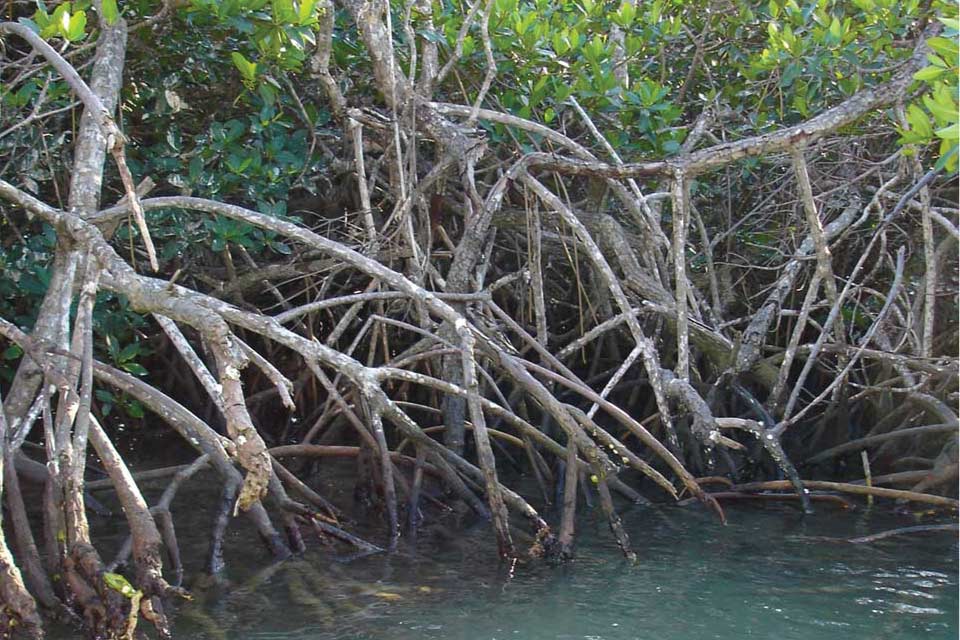Mangrove Trees: Nature’s Climate Change Warriors

Rashidat Oladele
In the battle against climate change, a humble hero emerges – the mighty mangrove tree.
These incredible trees, found in coastal areas around the world, are playing a crucial role in combating global warming. Mangroves are nature’s carbon warriors. They have the remarkable ability to absorb large amounts of carbon dioxide, a greenhouse gas that contributes to the Earth’s warming.
Through their roots, mangroves store carbon dioxide by effectively removing it from the atmosphere. Mangrove can be found largely in most states of the Niger Delta region, especially Bayelsa and Rivers.
Reports say the mangroves in the Niger Delta are the largest in Africa and the third largest in the world. Regrettably, environmental degradation occasioned by oil and gas exploration and exploitation, deforestation as well as dredging activities has constituted a major threat for the mangrove trees in the region
Mangroves also act as a natural shield against the impacts of climate change. Their dense root systems help protect coastlines from erosion and storm surges, reducing the risk of flooding for nearby communities.
Additionally, these resilient trees provide essential habitats for a wide variety of plant and animal species, promoting biodiversity and ensuring the health of coastal ecosystems.
In supporting these climate change superheroes, it is essential to protect and restore mangrove habitats. By preserving existing mangrove trees and planting new ones, we can enhance their carbon sequestration capabilities and safeguard our coastlines. Together, we can harness the power of mangroves to combat climate change and create a more sustainable future for our planet.
Not only are mangroves climate change superheroes, they also provide numerous benefits to local communities. These coastal forests serve as nurseries for fish and other marine species, supporting the livelihoods of millions of people who depend on fishing for their sustenance and income.
Mangroves also act as natural water filters, trapping sediments and pollutants before they reach the ocean, thus improving water quality for both humans and marine life.
Unfortunately, mangroves are under threat due to human activities such as deforestation and coastal development. As a result, their vital role in mitigating climate change is being compromised.
It is crucial to create awareness about the significance of mangroves and work towards their conservation. By implementing sustainable practices, supporting mangrove restoration projects, and advocating for their protection, we can ensure that these remarkable trees continue to thrive and contribute to our fight against climate change.
